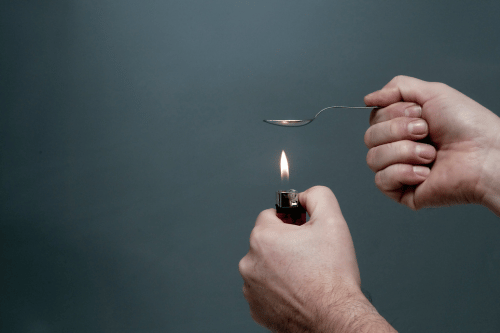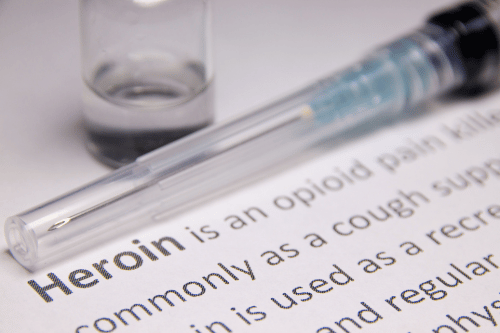How Long Does Heroin Last in Your System? Effects, Duration, and Detection Times
Heroin, derived from the opium poppy, is a potent and highly addictive opioid drug that poses significant dangers to those who use it. Understanding how long heroin lasts in the body is crucial, as it plays a pivotal role in both heroin addiction and drug abuse treatment. This article will explore the duration of heroin’s effects, its presence in the system, and the importance of seeking heroin addiction treatment.
What Is Heroin?

Heroin is a highly addictive and illegal opioid drug derived from morphine, a substance extracted from the opium poppy plant. Known for its potent effects, heroin is classified as a Schedule I controlled substance by the Drug Enforcement Administration (DEA), indicating its high potential for abuse and lack of accepted medical use. Heroin addiction is a serious issue, leading to severe health consequences and a high risk of overdose.
Physical Appearance and Forms of Heroin
Heroin can be found in various forms, each with distinct physical characteristics. The most common forms include:
White Powder: This is a fine, crystalline powder that is often cut with substances like sugar, starch, or powdered milk to increase its volume. White heroin is typically the purest form and is usually snorted or dissolved for injection.
Brown Powder: Less refined than white heroin, brown heroin has a brown or orange hue. It is often smoked or snorted and may contain impurities that affect its color and potency.
Black Tar Heroin: This form is a sticky, tar-like substance that ranges in color from dark brown to black. Black tar heroin is commonly injected and is known for its lower purity and higher risk of causing infections and other health issues due to its consistency and the presence of additives.
Capsules or Tablets: In some cases, heroin is pressed into capsules or tablets, making it easier to transport and distribute. These forms can resemble other medications, posing additional risks of accidental ingestion.
The appearance of heroin can vary significantly depending on its purity and the presence of additives or adulterants, which can affect its potency and the method of administration.
How Long Do the Effects of Heroin Last?

The immediate effects of heroin can appear within a few minutes after use, regardless of whether it is smoked, injected, or snorted. These effects typically last for a few hours, leading users to feel a sense of euphoria and relaxation. However, the half-life of heroin is relatively short, about 30 minutes, meaning it is rapidly processed and converted into metabolites that stay longer in the system.
Injecting heroin tends to produce the quickest onset, with effects lasting between 2-4 hours.
Smoking heroin or snorting it may have a slower onset, but the effects can linger for a similar duration.
The duration also depends on individual factors like metabolism, frequency of use, and whether other substances are used simultaneously.
How Long Does Heroin Stay in Your System?
While the euphoric high may wear off in a few hours, heroin stays in your system for varying durations depending on the method of drug testing. The drug tests used to detect heroin include:
Urine tests: Detect heroin for up to 2-3 days after the last use.
Saliva tests: Detect heroin for 24 hours.
Blood tests: Can detect heroin within 6 hours of use.
Hair follicle tests: Can detect heroin use for up to 90 days, though these are less common.
Heroin’s rapid metabolism makes it hard to detect, but metabolites such as 6-acetylmorphine can indicate heroin use within specific time windows.
Heroin Detection and Testing

Detecting heroin use is crucial for managing substance abuse and providing appropriate treatment. Various testing methods are employed to identify the presence of heroin and its metabolites in the body, each with different detection timeframes:
Blood Tests: Blood tests can detect heroin almost immediately after use, making them useful for identifying recent drug use. However, heroin is rapidly metabolized, so its presence in the blood is short-lived.
Urine Tests: Urine tests are commonly used to detect heroin use, with the ability to identify the drug for up to 7 days after the last use. This method is widely used due to its non-invasive nature and longer detection window.
Hair Analysis: Hair tests provide a longer historical record of drug use, capable of detecting heroin for up to 90 days. This method is less common but useful for identifying long-term patterns of substance abuse.
Saliva Tests: Saliva tests are effective for detecting recent heroin use, typically within 24 to 48 hours. They are less invasive than blood tests and provide quick results.
Understanding the detection timeframes and methods is essential for accurately identifying heroin use and implementing effective substance abuse treatment strategies.
Factors Influencing How Long Heroin Stays in the Body
Several factors influence how long heroin and its metabolites remain detectable, including:
How much heroin was used
Heroin regularly versus occasional use
The presence of other substances or synthetic opioids
The individual’s central nervous system response
Using more drugs in combination with heroin, such as other opioids or alcohol, increases the risk of overdose and complicates detection through testing.
What Are the Effects of Heroin?
Heroin, a major contributor to drug abuse, binds to opioid receptors in the brain, leading to intense feelings of euphoria, pain relief, and sedation. However, heroin abuse can also suppress breathing, slow heart rate, and induce coma. Regular heroin use builds tolerance, causing physical dependence and withdrawal symptoms when usage stops.
Heroin Withdrawal Symptoms
Heroin withdrawal is notoriously difficult, causing severe physical and psychological symptoms that appear within hours of the last dose. Common heroin withdrawal symptoms include:
Intense cravings
Muscle and bone pain
Diarrhea and vomiting
Cold sweats
Restlessness and insomnia
Without professional intervention, withdrawal can lead to relapse and exacerbate mental health issues such as anxiety or depression.
Seeking Heroin Addiction Treatment
Overcoming heroin addiction requires comprehensive treatment that addresses both the physical and psychological aspects of the disease. Medication-assisted treatment (MAT), combined with behavioral therapies, has proven effective in reducing cravings and withdrawal symptoms.
At Revival Mental Health, we offer specialized heroin addiction treatment programs tailored to individual needs. Our approach integrates mental health services administration, helping clients achieve long-term recovery.
The Importance of Medical Supervision in Quitting Heroin
Quitting heroin is a challenging process that requires medical supervision to ensure safety and effectiveness. Heroin withdrawal can be an intense and uncomfortable experience, often described as flu-like, with symptoms such as intense cravings, muscle and bone pain, diarrhea, vomiting, cold sweats, restlessness, and insomnia. Without proper medical supervision, these withdrawal symptoms can lead to serious health complications and increase the risk of relapse.
Medical supervision provides several benefits during the withdrawal process:
Management of Withdrawal Symptoms: Healthcare professionals can administer medications to alleviate withdrawal symptoms, making the process more manageable and reducing the risk of complications.
Medication-Assisted Treatment (MAT): MAT involves the use of medications like methadone, buprenorphine, or naltrexone to reduce cravings and withdrawal symptoms. This approach has proven effective in helping individuals achieve and maintain sobriety.
Behavioral Therapy: Behavioral therapies, such as cognitive-behavioral therapy (CBT) and contingency management, help individuals change their behavior and thought patterns related to drug use. These therapies are essential for addressing the psychological aspects of addiction.
Access to Mental Health Services: Many individuals struggling with heroin addiction also face underlying mental health issues, such as anxiety or depression. Medical supervision ensures access to comprehensive mental health services, addressing these co-occurring disorders and supporting long-term recovery.
Overall, medical supervision is crucial for safely navigating the withdrawal process and providing the necessary support for individuals to overcome heroin addiction and achieve lasting recovery.
The Dangers of Heroin Use and Overdose
The risk of heroin overdose is significant, especially with black tar heroin or when combined with other drugs. Users often underestimate the potency of heroin, particularly when mixed with synthetic opioids like fentanyl. This dangerous combination can lead to respiratory failure and death.
Heroin is not only a dangerous drug but also a major concern in the context of drug abuse. This public health crisis requires urgent intervention. Early treatment and support are essential to break the cycle of substance abuse and restore well-being.
Conclusion: How Long Does Heroin Last and Why Treatment is Essential
The answer to “how long does heroin last” depends on various factors, including the method of use, individual physiology, and drug testing methods. While the high only lasts a few hours, heroin’s grip on the body and mind is profound and dangerous.
If you or a loved one struggles with heroin use disorder, seek treatment immediately. Our dedicated team at Revival Mental Health is here to help you overcome addiction and reclaim your life.





